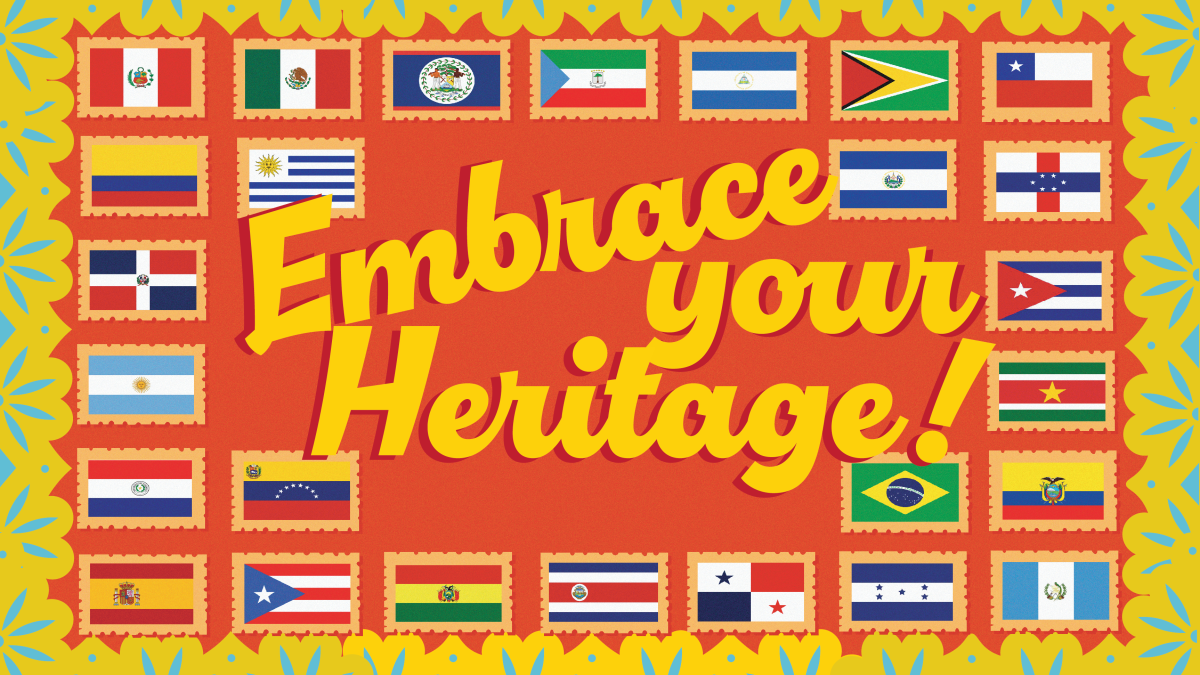If there’s one thing all Latinos have in common, it’s that we’re proud of who we are and where we come from.
We embrace and celebrate our heritage every day, because our culture is such a significant part of who we are. Latinos have such a strong cultural pride that it’s contagious.
Hispanic Heritage Month is a great way to celebrate and share our Latin American cultures with others. Instead of letting our identity blend in with Western trends, we must continue to preserve our authenticity and values.
To elevate the voices of Hispanic students on campus, I decided to interview other Latin American students in the LatinX Center at LSU’s Office of Multicultural Affairs and hear their opinions on Hispanic culture.
MORE OPINION: Professors should let students lead lectures more often
When asked what the best way to share our culture is, Hector Alvarez, a history senior, replied, “I would say through music and through dance, because Latin America is so diverse in those categories.”
Music, dance, food and family were other common responses about what we all share and value most as Latinos.
“I feel like a lot of people don’t value their family and having a big family and connecting with each other that way,” said Maya Zavala, a biochemistry sophomore. “Like people have asked me before, why are you always with your family?”
For a lot of Latinos, family doesn’t just mean parents and siblings, but grandparents, cousins and everyone in between. Knowing they always have your back is a great support system.
Just as there are cultural differences, there are differences in language and translation. Understanding how it all works is key to understanding our identity.
“I don’t like the word Hispanic. I prefer Latino,” said Saleen Gonzalez, a political science and Spanish senior. She then explained that Hispanic refers only to Spanish speakers, whereas Latino includes all Latin Americans.
I asked for her take on the term “LatinX,” as we were all in the LSU LatinX Center.
“Some people aren’t familiar with how the Spanish language is structured,” Gonzalez said. Touching on grammar and pronunciation, she explained that it is hard to pronounce the letter X at the end of a word in Spanish.
“LatinX is a very English word,” she said. “Companies need to do a better job of asking an actual Latino for our opinion instead of taking one for us.”
Although Hispanic Heritage Month was originally created to recognize the achievements and cultural contributions of Hispanic Americans, it has lost part of its significance, becoming another marketable campaign in today’s extra-commercialized society.
“Target’s Hispanic Heritage thing, I know they mean well, but it’s a money grab,” Gonzalez said. “Any Latino knows they can go to a Hispanic business and support it, not just for one month. It feels like a money grab more than anything.”
When asked about many Americans’ concerns over cultural appropriation, Gonzalez replied, “Real Latinos don’t really care about cultural appropriation. The second you start talking bad about our people, that’s when I draw the line.”
READ MORE: LSU safety Greg Brooks Jr. diagnosed with rare from of brain cancer
Today, nearly 20% of people in the U.S. are Latino, and about 80% of them are citizens, according to the Pew Research Center.
As a tight-knit, growing demographic in America, we must continue to remain true to our identity and beliefs. It’s important to uphold the values and traditions we were raised with. It can be easy to want to change who we are to fit in, but by doing so, we lose what makes us unique.
“I think we should stick together,” Gonzalez said. “We all have that mutual understanding. Once you learn we’re Latino, we instantly click, and if you continue that, that is how it should be.”
Isabella Albertini is a 23-year-old mass communication junior from Lima, Peru.





